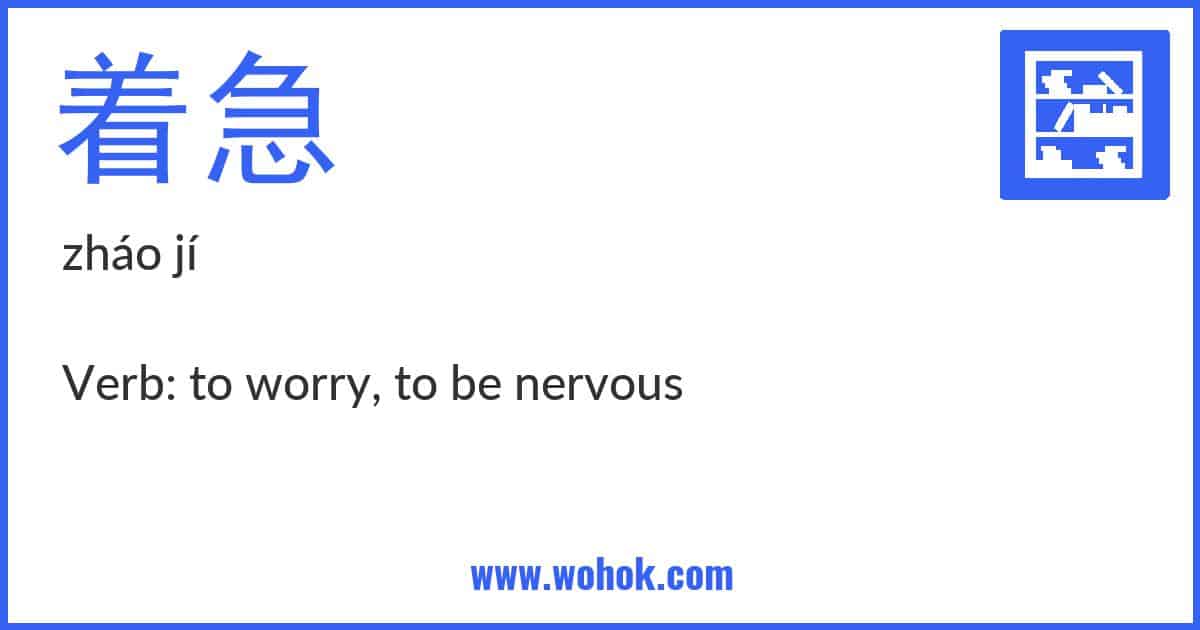The Chinese word 着急 means “to be anxious” or “to be worried”. It is commonly used to describe a feeling of urgency or unease, often in response to a stressful or uncertain situation. For example, if someone is waiting for an important phone call and it has not come yet, they might say “我很着急” meaning “I am very anxious”. It can also be used as a verb, as in “别着急” meaning “don’t worry”.
Translation
Verb: to worry, to be nervous
Pronunciation
Example Sentences
| Chinese | Pinyin | Engish |
|---|---|---|
| 我很着急,因为我迟到了 | wǒ hěn zháo jí, yīn wèi wǒ chí dào le | I am very anxious because I am late |
| 妈妈着急地等着我回家 | mā mā zháo jí de děng zhe wǒ huí jiā | Mom is anxiously waiting for me to come home |
| 我们必须着急处理这个问题 | wǒ men bì xū zháo jí chǔ lǐ zhè ge wèn tí | We must urgently deal with this problem |
| 我们不要着急,慢慢来 | wǒ men bù yào zháo jí, màn màn lái | Let’s not rush, take it slowly |
| 他的父母很着急他的健康问题 | tā de fù mǔ hěn zháo jí tā de jiàn kāng wèn tí | His parents are very anxious about his health issues |
| 我们不能着急,必须冷静分析 | wǒ men bù néng zháo jí, bì xū lěng jìng fēn xī | We can’t be anxious, we must analyze calmly |
| 我们的老板着急我们完成这个项目 | wǒ men de lǎo bǎn zháo jí wǒ men wán chéng zhè ge xiàng mù | Our boss is anxious for us to complete this project |
HSK
着急 is part of HSK Level 3 in HSK 2.0. In the newer HSK 3.0 it is part of HSK Level 4.
Learning Card


